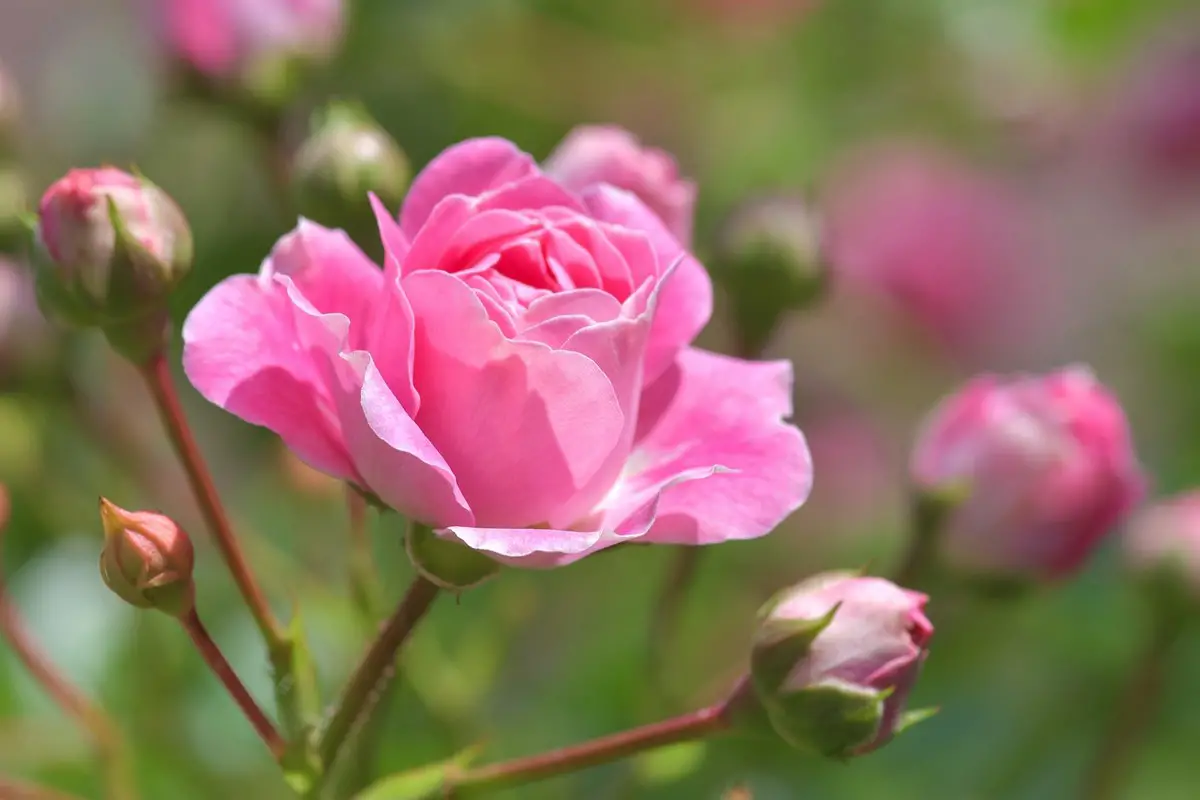A guide to potted roses, Everything you need to know, Home landscape tips, Flower planting advice
A Guide to Potted Roses: Everything you need to know
2 February 2024
The humble rose can be traced back around 5000 years to its origins in Asia. There is mention of Confucius growing roses around 500 B.C in the Imperial Gardens and the emperor at the time had hundreds of books in his library dedicated to the topic of roses. They have been an important flower ever since and our love for this stunning floral hasn’t diminished over the centuries.
Roses are a popular flower to give as a gift to that special someone in your life, and potted roses are becoming an increasingly popular choice that means that a gift can last for even longer.
What is a potted rose?
The term potted rose is used to refer to the type of rose plant that you will receive when you order it. Some roses are shipped as “bare root” stock which means that they will need to be planted out in your garden as soon as you can because they have neither pot nor compost. A potted rose, as the name suggests, will arrive in a pot, and whilst they will still need planting out this does not need to be done with the same sense of urgency that is required with a “bare root” rose.
A good supplier of potted roses will provide plants in a large growers pot, around 4L, which will contain sufficient compost to feed the plant for around 4 months. This means that the rose does not have to be planted outside immediately.
Planting a potted rose
Not all potted roses are rooted in the pot that they are sent out in. The reason for this is that rose plants are dormant between November and March when they are not growing and for this reason, they may not in fact produce any new roots in the pot. This lack of growth can mean that the compost they are shipped in may be loose and fall off the roots when they are taken out of the pot.
If you want to keep them in the pot then this can safely be done until March, but you should ensure that they are watered on a frequent basis.
When it comes to planting your rose out you should always follow any instructions that are supplied with the plant. This includes ensuring that it is watered on a regular basis until it is well established.
New growth occurs in the spring time and on average a new plant will grow around 50 cm in its first year.
Deadheading your rose will help the plant to produce more flowers and will give you a wonderful floral display for longer.
Variety of potted roses
There are a staggering 30,000 cultivated varieties of roses available with every colour imaginable. Whether you want a climbing rose, a tea rose, a floribunda or any of the other types of roses that are available they are a great choice for any garden, and many of the smaller flowering varieties also make good container displays for patios.
Comments on this guide to A Guide to Potted Roses: Everything you need to know article are welcome.
Plants
Garden Plants
Planting perennials in your garden benefits
Trends in Plant Design and Architecture
Water garden and landscape with aquatic plants
How to Take Care of Your Growing Plants in the Garden
5 best aquatic plants that can help reduce algae
Environmentally friendly artificial plants
Plants and green spaces benefit your building
Homes
Residential Architecture Articles
Comments / photos for the A Guide to Potted Roses: Everything you need to know page welcome





